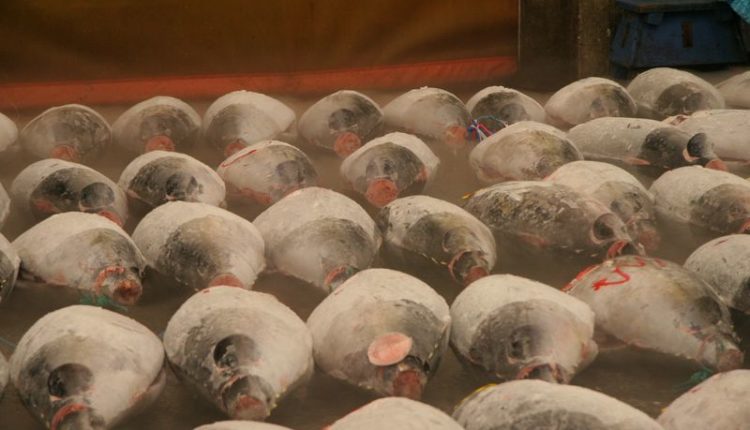“Man must live, not on bread alone…”
That’s half of Matthew 4:4, according to Christ. And the Lord is right, isn’t he?
There really is a lot — aside “every word that comes from Jehovah’s mouth,” of course — that, coupled with bread, satisfies man’s needs. Take, for instance, fish — as the good Lord himself demonstrated when twice he fed thousands miraculously.
Granted, those phenomena occurred more than two millennia ago, but little has since changed. Especially in Ghana, a country blessed with a sizable chunk of the Atlantic Ocean, fish remains indispensable. From Keta and its famous ‘school boys’ to Jamestown and its ‘kpanla’, aquaculture is rich across the country. In Fanti stew, Ga ‘shitor’, and the varied soups savored all around the country regardless of ethnicity, fish is ubiquitous.
Let’s stray from the coastline now, though, heading inland to another massive water body, albeit of a different nature: the Volta, Ghana’s main river system. The river — so huge that it has three different segments — snakes along Ghana’s entire length, draining into the Gulf of Guinea down south and kissing — even breaching — the nation’s borders with Burkina Faso and Cote d’Ivoire.
Unsurprisingly, it’s a major source of livelihood for many whose settlements straddle the river at several points, featuring a common thread: fish, and lots of it.
Now, nowhere is the river more glorious than in Atimpoku where it’s adorned by the two-hinged steel arch structure known as the Adomi Bridge. However, though magnificent and as old as the country itself, this feat of engineering isn’t Atimpoku’s main center of attention – not to the indigenes, anyway.
That singular honour goes to the river and its rich fish stock. Each morning, people gather on the banks of the Volta, cooperating in a chain of activities which ultimately transfer the fish from river to dish. The fishermen — brave and strong — do the hard work of luring the fish via various means, subtle and direct, into their vessels.
Then, after sorting has been done, another class of fisher-folk — predominantly female and diligent fishmongers — come around with their basins, buckets and baskets. These purchase fish of their preference — particularly the type of anchovy nicknamed ‘one man thousand’, adored for its wonderful union with the local delicacy ‘abolo’ — and carry them home, where they preserve and prepare the package in many ways for onward sale and consumption by patrons.
It’s all very tiring, but these men and women still go about their sweaty work smiling, under the shadow of the imposing Adomi, basking in the early morning sun and in the satisfaction of how their industry enriches their own lives and ours.
With fish very much a staple in Ghanaian diet and the needs of a latter-day generation obsessed with being lean and fit to be catered to, it’s certainly a pleasure for the subjects of this week’s Photo Story to do what they do — rowing, fishing, drying, frying and, whenever required, posing for the cameras.
Columnist: Sammie Frimpong


Comments are closed.